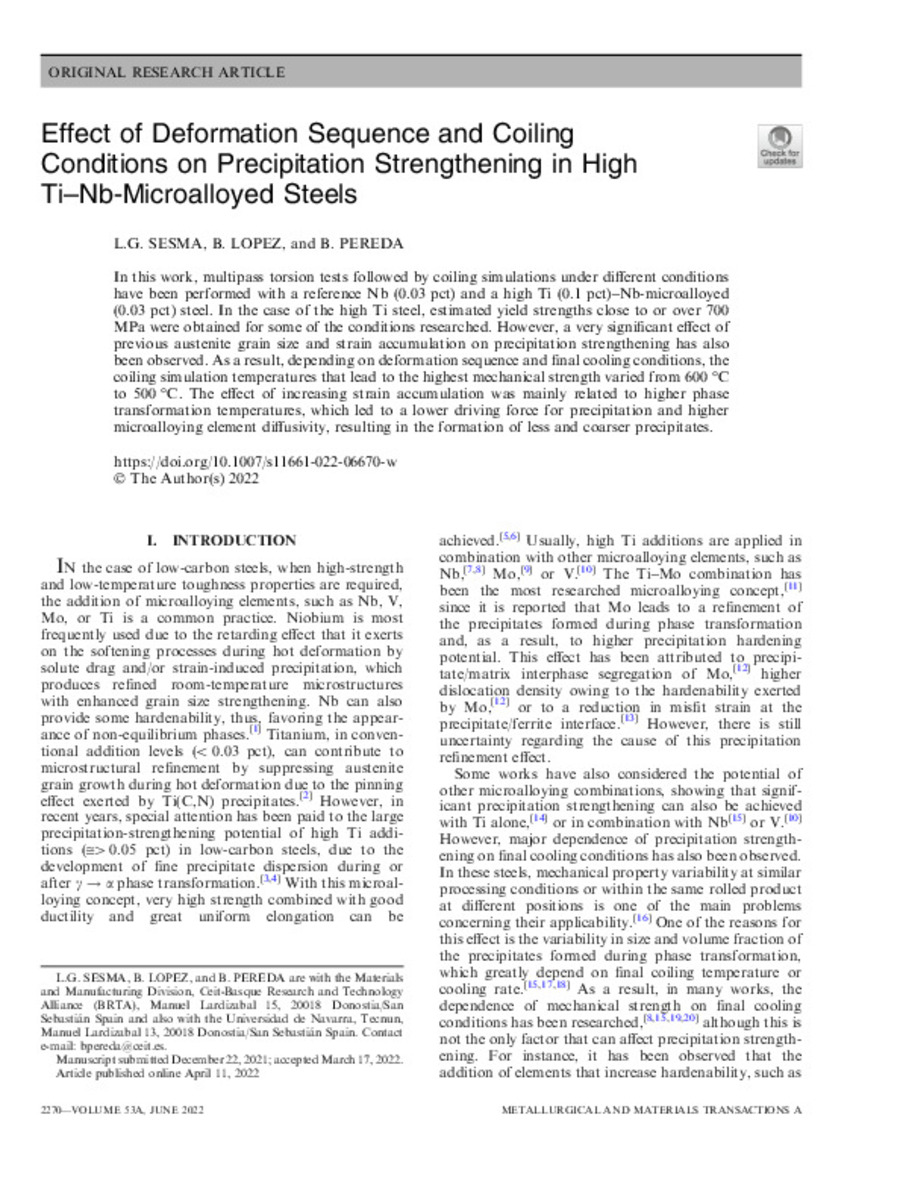Effect of deformation sequence and coiling conditions on precipitation strengthening in high Ti-Nb-microalloyed steels
Keywords:
Área de Ciencia y Tecnología de Materiales
Strain-induced precipitation
Interphase precipitation
Mechanical-properties
Low-carbon
Austenite
Recrystallization
Microstructure
Niobium
Ferrite
Temperature
Citation:
Sesma, L. G.; López-Soria, B. (Beatriz); Pereda-Centeno, B. (Beatriz). "Effect of deformation sequence and coiling conditions on precipitation strengthening in high Ti-Nb-microalloyed steels". METALLURGICAL AND Materials Transactions A- Physical Metallurgy and Materials Science. 53 (6), 2022, 2270 - 2285
Statistics and impact
0 citas en

0 citas en

Items in Dadun are protected by copyright, with all rights reserved, unless otherwise indicated.







